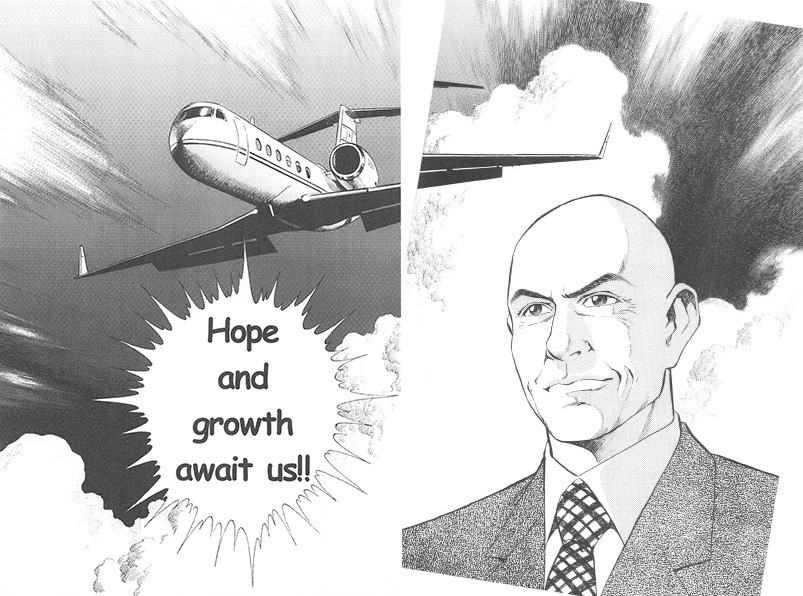He turned $100 million into $40 billion – now Mark Mobius believes company culture is vital for investment
When the ‘Godfather of Emerging Markets’, starts quoting the Glassdoor scores of his portfolio companies you know something in the corporate world has changed.
Whether you call him the ‘Bald Eagle’ or the ‘Indiana Jones of Market Investing’, the business credentials of Mark Mobius are hard to question. With the Templeton Emerging Markets, he took that humble $100m invested in six countries, went out into the world, and when he was finished that stood at over $40bn invested in more than 70 countries.
With more than one million miles travelled, over 5,000 companies invested in, 12 books, and more than 30 decades of experience, he is now based in Dubai having founded Mobius Capital Partners back in 2018.
His most recent work, ‘Culture Can’t Be Bought but Can It Pay? – Corporate Culture as a Driver of Performance in Emerging Market Companies’ his firm’s white paper should come as a wake-up call to businesses both regionally and globally, especially with their new approach ESG+C.
What’s ESG + C?
While boardrooms over recent years have begun to recognise that ESG is no longer a nice to have but a vital part of a company’s DNA if it wishes to have long-term sustainability and thus continue to attract investment, Mobius now espouses that C – culture – is now as important.
Rather than being an evangelist for better treatment of staff, Mobius makes the cold hard business case for better company culture, which includes the wellbeing and mental health of the team.
As part of the exercise, his firm compiled a 40-company EM Culture Portfolio, companies invested in which adhered to and embraced various aspects of positive culture.
The result? Over 10 years the EM Culture Portfolio generated a return of 490.2% compared to the MSCI EM Index return of 30.5%.
To quote the report: “Integrating environmental, social and governance (ESG) factors into the investment process has become common over the years, but a crucial and missing component within this is corporate culture.
“Whilst there is strong evidence showing that ESG leaders outperform their peers, we believe that companies with strong corporate cultures provide an additional driver of outperformance in the long term.”

With mentl, we will continue to highlight the ROI of doing the right thing, but here again is proof that if companies change their culture, they make more money.
Mobius and I sat down in front of an invited audience at The Arts Club Dubai to record our conversation for its Culture Counter Podcast series.
SA: Tell us more about your concept of ESG+C
MM: You know, a lot of people talk about ESG as sort of something very idealistic and wonderful for the world, so forth.
I don’t look at it that way, I look at it in a very practical way. I look at ESG environmental social governance as risk control. Because if you have a company, that does not have good environmental standards, does not have good social standards not does not have good governance, you’re at risk, and the company is not going to do very well.
So that’s the way I look at it. It’s nice for the world to improve ESG but at the end of the day, as an investor, it’s risk control.
What we’ve done is we’ve added C, so it’s ESG plus C, that C is the culture of the company. We believe that and we’ve shown it in a paper, that if the company culture is good, the company will do better, and the performance will be better.
It stands to reason because if you have a good internal culture in the company, they would tend to do better on E, S, and G as well. So, this is the thing that we’re inculcating into our investment philosophy.
SA: What’s the inherent risk for businesses that don’t take a look around and go great resignation, need to get the young minds in to be agile, adapt and grow?
A good example of that would be let’s say you have a workforce, particularly now by the way, with people working at home and not necessarily being in one place.
If their morale, in other words, if they feel that the management is not really listening to them, is not really compensating them in a fair way – and this doesn’t mean you have to compensate them at a high cost but in a fair way – if they have all of these concerns, then you’re probably going to lose them. And that’s a big risk for the company.
SA: We’ve seen companies such as JP Morgan say ‘everyone back to work, or you lose your job’ and then only 50 percent on the company turn up, what is the view of ‘the Godfather of Emerging Markets’ on remote work?
MM: The great thing now with Zoom, and with the communication revolution that we’re experiencing, is that we can remote work much more effectively than ever before.
I believe that remote work is here to stay. And our company is a good example. I’m here in Dubai, my partners are in Munich, and our staff are in London. Now doesn’t mean we don’t get together, we get together occasionally once a month or so.
And face to face is very important, but it’s not necessary to be together all the time. So very often, you can work more efficiently by being separated rather than being all together. So I really believe in remote work.
It’s very, very innovative now and with the technology that we have, it’s possible that you can do it very effectively.
To listen to more of the conversation find the full podcast here.
